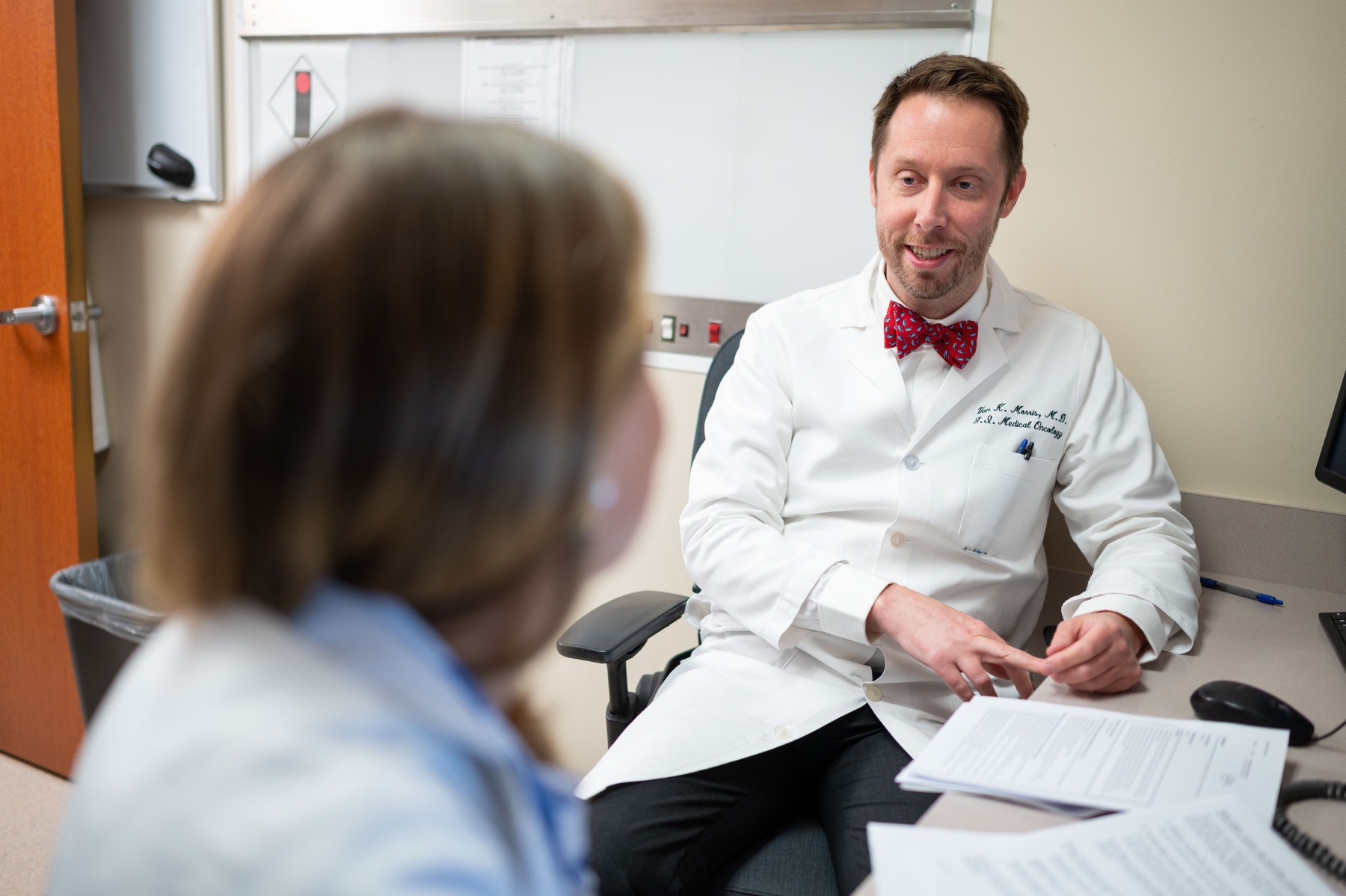- Diseases
- Acoustic Neuroma (14)
- Adrenal Gland Tumor (24)
- Anal Cancer (66)
- Anemia (2)
- Appendix Cancer (16)
- Bile Duct Cancer (26)
- Bladder Cancer (68)
- Brain Metastases (28)
- Brain Tumor (230)
- Breast Cancer (718)
- Breast Implant-Associated Anaplastic Large Cell Lymphoma (2)
- Cancer of Unknown Primary (4)
- Carcinoid Tumor (8)
- Cervical Cancer (154)
- Colon Cancer (164)
- Colorectal Cancer (110)
- Endocrine Tumor (4)
- Esophageal Cancer (42)
- Eye Cancer (36)
- Fallopian Tube Cancer (6)
- Germ Cell Tumor (4)
- Gestational Trophoblastic Disease (2)
- Head and Neck Cancer (6)
- Kidney Cancer (124)
- Leukemia (344)
- Liver Cancer (50)
- Lung Cancer (288)
- Lymphoma (284)
- Mesothelioma (14)
- Metastasis (30)
- Multiple Myeloma (98)
- Myelodysplastic Syndrome (60)
- Myeloproliferative Neoplasm (4)
- Neuroendocrine Tumors (16)
- Oral Cancer (100)
- Ovarian Cancer (170)
- Pancreatic Cancer (164)
- Parathyroid Disease (2)
- Penile Cancer (14)
- Pituitary Tumor (6)
- Prostate Cancer (144)
- Rectal Cancer (58)
- Renal Medullary Carcinoma (6)
- Salivary Gland Cancer (14)
- Sarcoma (236)
- Skin Cancer (296)
- Skull Base Tumors (56)
- Spinal Tumor (12)
- Stomach Cancer (60)
- Testicular Cancer (28)
- Throat Cancer (90)
- Thymoma (6)
- Thyroid Cancer (98)
- Tonsil Cancer (30)
- Uterine Cancer (78)
- Vaginal Cancer (14)
- Vulvar Cancer (18)
- Cancer Topic
- Adolescent and Young Adult Cancer Issues (20)
- Advance Care Planning (10)
- Biostatistics (2)
- Blood Donation (18)
- Bone Health (8)
- COVID-19 (362)
- Cancer Recurrence (120)
- Childhood Cancer Issues (120)
- Clinical Trials (628)
- Complementary Integrative Medicine (24)
- Cytogenetics (2)
- DNA Methylation (4)
- Diagnosis (230)
- Epigenetics (6)
- Fertility (64)
- Follow-up Guidelines (2)
- Health Disparities (14)
- Hereditary Cancer Syndromes (124)
- Immunology (18)
- Li-Fraumeni Syndrome (8)
- Mental Health (118)
- Molecular Diagnostics (8)
- Pain Management (62)
- Palliative Care (8)
- Pathology (10)
- Physical Therapy (18)
- Pregnancy (18)
- Prevention (898)
- Research (392)
- Second Opinion (74)
- Sexuality (16)
- Side Effects (604)
- Sleep Disorders (10)
- Stem Cell Transplantation Cellular Therapy (216)
- Support (404)
- Survivorship (322)
- Symptoms (184)
- Treatment (1776)
Non-Hodgkin lymphoma survivor finds help, hope
3 minute read | Published February 10, 2017
Medically Reviewed | Last reviewed by an MD Anderson Cancer Center medical professional on February 10, 2017
Random nose bleeds and unexplained bruises were Edgar Villalta’s first clues that something was wrong. Then little red dots appeared all over his body.
Doctors in his home state of Alabama misdiagnosed him three times.
“At this point, I was getting bleeding from my head. I also was getting some bleeding inside my mouth,” he says. “The more time that passed by, I was getting weaker and more tired.”
A rare non-Hodgkin lymphoma diagnosis
Then one day in October 2009, Edgar collapsed at work. He was taken to the emergency room and was hospitalized for a week. “My platelet count was at 3,000, which is exceptionally low,” he says.
After a platelets transfusion, a bone marrow test finally revealed his diagnosis: stage IV mantle cell lymphoma. Doctors told Edgar to find an oncologist who specialized in this rare type of non-Hodgkin lymphoma.
Non-Hodgkin lymphoma treatment at MD Anderson
During his search for the right oncologist, a co-worker suggested he look into MD Anderson.
“I just knew that I needed to get the best help I could get, no matter what,” he says.
Edgar made his first 12-hour drive to Houston that November.
“I was very impressed with MD Anderson, and the staff was friendly. Everybody was helpful, so it felt it right. I was glad I was there because I just had a feeling that I was going to get the right help that I needed,” he says.
Michael Wang, M.D., put Edgar on a treatment plan that included eight cycles of the chemotherapy drugs Adriamycin and Hyper-CVAD, as well as prednisone, a steroid. His side effects were mild.
“At the beginning, I had some body aches and headaches. I also had some diarrhea,” he says.
But with each treatment, Edgar could feel his health improve. By June 2010, the cancer was no longer detectable.
Edgar relapsed in late 2012, but went back into remission after taking two cycles of the chemotherapy drug Velcade. Edgar had a recurrence scare in 2015, which resulted in the surgical removal of a lymph node in May 2015. Thankfully, it came back negative for lymphoma, and he’s continued to show no evidence of disease.
“Dr. Wang was always positive and always giving hope that we were gonna fight this through, and we did,” he says.
Learning to cope with cancer
Edgar doesn’t have any long-term side effects. He says the hardest part was the mental toll that cancer took on him.
"I was kind of depressed at the time with all that was going on. But when I got to MD Anderson, Dr. Wang really lifted up my hopes," Edgar says.
Edgar learned to lean on his family, faith and the rest of his care team to get him through that time, and he encourages everyone to do the same.
“It's very hard to keep your mind focused, but you have to do it in order to survive,” he says. “You have got to have faith that you're going to be well. You've got to have confidence in your doctor that he's making the right decisions to get you to be well.”
Request an appointment at MD Anderson online or by calling 1-888-509-0231.
Related Cancerwise Stories

Dr. Wang really lifted up my hopes.
Edgar Villalta
Survivor





